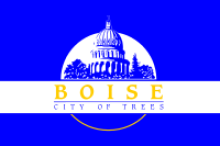Kings Mountain, North Carolina, Building Fiber Network to Connect Public Facilities
Fiber optic connectivity is coming soon for public facilities in Kings Mountain, North Carolina. The city has its own electric, natural gas, and water utilities and is home to a little over 10,000 people. Located along the southern edge of the state, the town is considered a suburb of Charlotte.
According to an Alicia Banks Gaston Gazette article, the City Council unanimously approved contracts to start construction and most of the city departments should be on the network before the end of the year. The city fiber optic cables amount to nine miles in length. Savings will be about $65,000 annually as the city uses its own fiber to supply phone and Internet connections rather than lease services. From the article:
“We should start seeing the savings within seven years,” Kings Mountain Mayor Rick Murphrey said. “It’s cheaper to use your own fiber optics."
Though seven years may seem like a long time to wait for savings, recall that these connections will be needed indefinitely. Further, these networks often lead to unanticipated benefits that can make the savings occur faster than forecast.
The entire project will cost $495,722 under a five-year payment plan. Also from the article:
“Taxpayers' dollars are helping to pay for this, but no increase,” Murphrey said about rates. “(Funds will also) come out of the electric, gas and water fund.”
Kings Mountain is another community choosing to use their current fiber resources to provide broadband to city facilities and save taxpayer dollars. Our recent Public Savings Fact Sheet, highlight a few of many other communities that choose this route.



